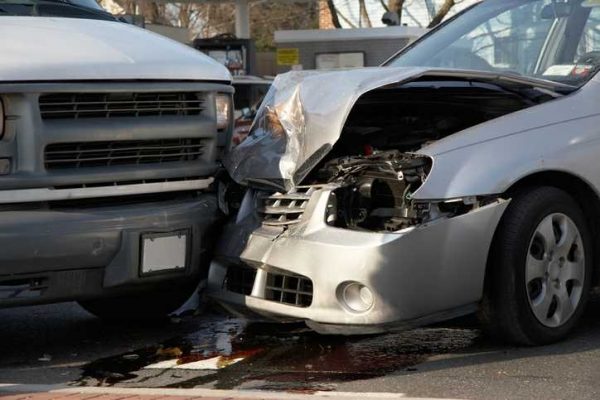What causes head-on car accidents?

A head-on collision occurs when two cars traveling in opposite directions crash into each other at a combined speed. These types of crashes often result in severe injuries or death. Those who survive head-on collisions may sustain:
- Serious traumatic brain injuries
- Bone fractures
- Spinal injuries
- Nerve damage
- Damage to internal organs
- Severe facial injuries
- Lacerations, bruises, and contusions
- Amputations and crushed limbs
- Paralysis
If you or a loved one was injured in a head-on collision, don't hesitate to get legal help from an experienced car accident attorney.
What factors can lead to head-on collisions?
Head-on collisions can happen just about anywhere, but they usually occur on single-lane roads, at intersections, and on highways.
The most common causes include:
- Drowsy driving — A sleepy driver can drift into an oncoming lane or even cross a center line or median barrier on a major road. Drowsy driving crashes tend to happen at full speed, as the unconscious driver makes no attempt to slow down or stop.
- Distracted driving — A driver distracted by their phone may fail to navigate a curve or intersection. Even after becoming aware of a crash risk, a distracted driver may not have enough time to avoid a collision.
- Speeding — Drivers who exceed the speed limit may travel too fast around a curve in the road or fail to stop at a regulated intersection.
- Impaired driving — Alcohol and drugs can cause impaired judgment, delayed reaction time, and loss of coordination, increasing the risk of a head-on collision.
- Car defects — An unexpected tire blowout, brake failure, wheel loss, or steering wheel issue can lead to a head-on collision. Car and car parts manufacturers may be responsible for a defect. The driver or car owner could also be responsible for failure to maintain a car or get it inspected, however.
- Wrong-way driving: Head-on collisions are typically rare, but crashes caused by wrong-way drivers are even more so. Drivers may enter one-way roads or the wrong lane if they are lost, impaired by drugs or alcohol, or use poor judgment.
- Swerving: Some head-on collisions can be caused by drivers swerving in the oncoming lane to avoid hitting another car, pothole, animal crossing the road, or road debris.
While not necessarily causes, some risk factors that can contribute to head-on collisions include conditions of poor visibility, slippery roadways, and high winds. Drivers can still prevent head-on collisions by maintaining a speed that is safe and prudent for the given conditions.
How can an attorney help me after a head-on collision?
No matter what caused your head-on collision, you likely sustained severe injuries or even lost a loved one. It's critical that you protect your legal rights by consulting with an experienced attorney at Recht Law Offices.
Our legal team can help ensure that the negligent party is held accountable and that you obtain the compensation you need for medical expenses, wage loss, pain, suffering, disability, and other damages associated with your crash.
We serve clients in West Virginia, Ohio, and Pennsylvania. Contact us online to schedule your free, confidential case evaluation.
